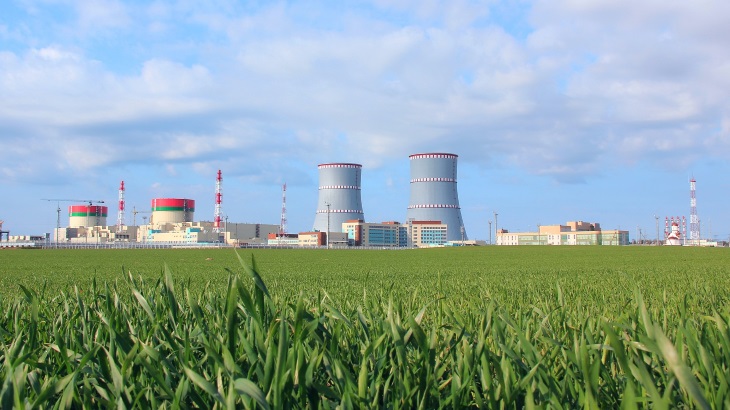Energy Minister Viktor Karankevich said that since November 2020 the first unit had produced enough electricity to replace the equivalent of 2 billion cubic metres of natural gas, with the second unit now close to being ready.

Belarus's first nuclear power plant, in Ostrovets, has been built by ASE (Image: ASE)
In his progress report on the Belarussian nuclear power plant, Karankevich said the second VVER-1200 reactor had fresh nuclear fuel loaded into the reactor core in December and the assembly of the reactor plant completed, plus hydraulic tests carried out.
He said that the aim was a start-up of the unit with its inclusion in the country’s energy system, and being put into commercial operation during 2022.
By the end of April, the first power unit of the nuclear plant in Ostrovets in the north west of the country - which he said had generated generated 7.6 billion kWh of electricity since being connected to the grid in November 2020 - would be taken offline for scheduled preventive maintenance.
"This is technological work that is carried out annually at nuclear power plants to ensure a stable operating condition of the equipment," he said. As part of the scheduled maintenance, due to last about 80 days, the first refueling of nuclear fuel will be carried out. In total, 163 fuel assemblies with fresh nuclear fuel are located in the reactor core of the first power unit. About 25% of them need to be replaced every year.
Karankevich also said that work was under way to prepare a presidential decree on establishing a national operator for radioactive waste management.
The new organisation will carry out design and survey work, including analysis and evaluation of technologies for processing and storage of radioactive waste. It will work alongside the Ministry of Energy, the Ministry of Emergency Situations and the National Academy of Sciences.
A comprehensive assessment of possible sites for the construction of a storage facility for radioactive waste will be carried out. It is envisaged that the project will be implemented in several stages with the first stage of the storage planned to be put into operation by 2030.
Researched and written by World Nuclear News